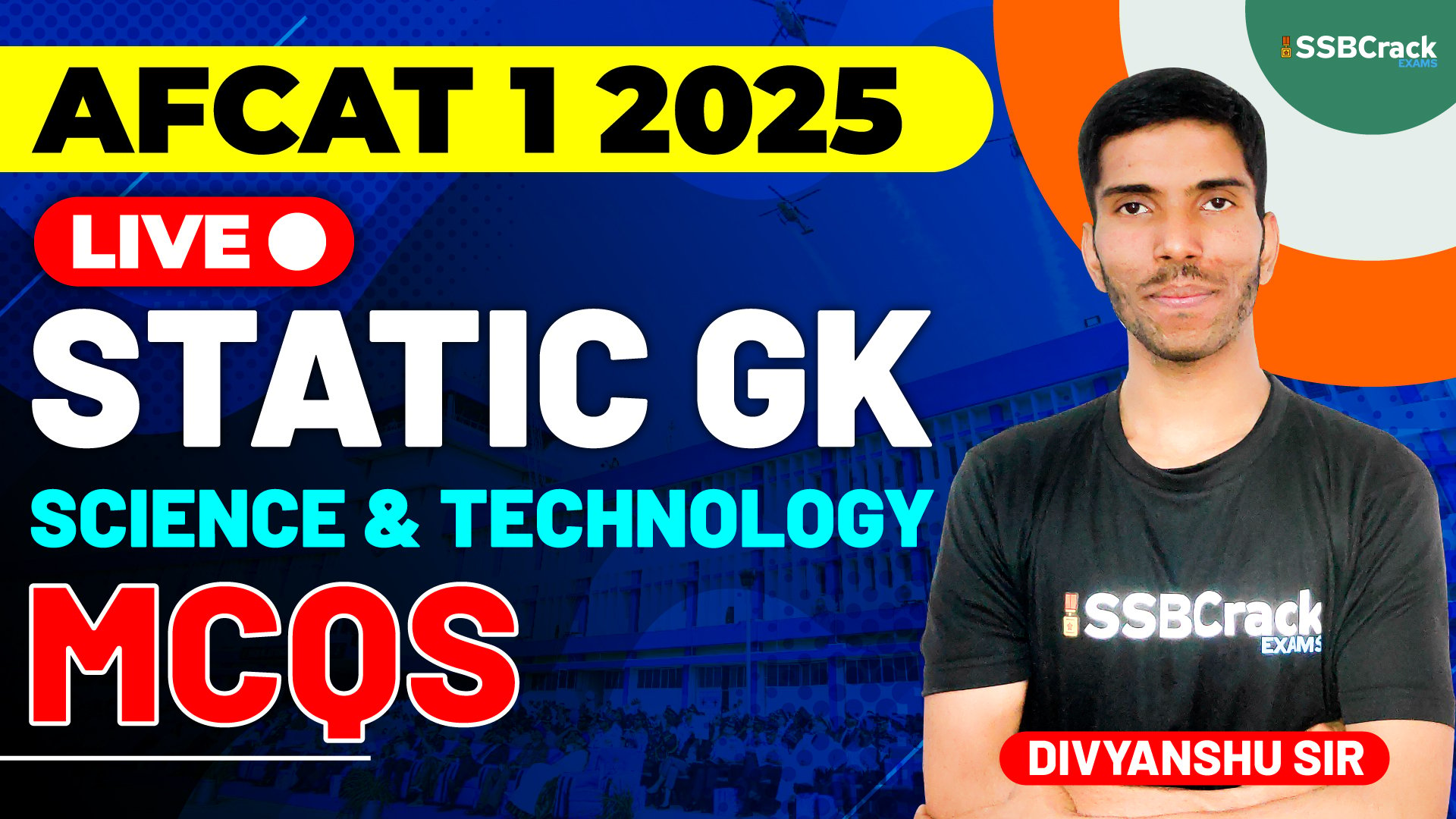Science and technology have always been pivotal in shaping the modern world, and their role in defense and national development is paramount. For AFCAT aspirants, understanding the latest advancements and their applications is crucial. This article highlights key topics in science and technology relevant for AFCAT 1 2025.
AFCAT 1 2025 Exam Static GK Science & Technology MCQs
Significant Achievements in Indian Science and Technology
Space Exploration
- Chandrayaan-3:
- India’s third lunar mission achieved a successful soft landing on the Moon’s South Pole.
- Aimed at advancing lunar exploration and studying surface conditions.
- Aditya-L1 Mission:
- India’s first solar mission designed to study the Sun’s corona, solar winds, and their impact on space weather.
- Launched by ISRO from the Satish Dhawan Space Centre.
- Gaganyaan Mission:
- India’s ambitious manned space mission.
- Aims to send Indian astronauts (Gagannauts) into low Earth orbit.
Defense Technology
- Hypersonic Technology Demonstrator Vehicle (HSTDV):
- Developed by DRDO, this technology is crucial for the development of hypersonic missiles.
- It allows speeds exceeding Mach 6.
- BrahMos Missile Upgrades:
- Enhanced range and precision for land-attack and anti-ship variants.
- Integration into all three armed forces.
- Arjun Mk-1A Tank:
- A state-of-the-art main battle tank developed indigenously.
- Features improved firepower, mobility, and protection.
Nuclear Technology
- Kudankulam Nuclear Power Plant:
- India’s largest nuclear power facility, expanding with additional reactors.
- Supports India’s clean energy goals.
- Thorium-Based Reactors:
- Development of Advanced Heavy Water Reactors (AHWRs) using thorium as fuel.
- Reduces dependence on uranium.
Emerging Technologies
Artificial Intelligence (AI) and Machine Learning (ML):
- Applications in predictive maintenance, battlefield simulation, and autonomous drones.
- AI-powered surveillance systems for border security.
Quantum Technology:
- Development of quantum communication systems to ensure secure data transmission.
- Quantum computing projects funded by the Indian government.
5G and Beyond:
- Deployment of 5G technology to enhance communication networks.
- Applications in defense for real-time data transfer and command systems.
Cybersecurity:
- Establishment of the Defence Cyber Agency (DCA) to combat cyber threats.
- Development of indigenous cybersecurity solutions to protect critical infrastructure.
Indigenous Innovation
Make in India in Defense:
- Promotion of indigenization in defense manufacturing.
- Key projects:
- Tejas Mk-2: An upgraded version of the Light Combat Aircraft.
- INS Vikrant: India’s first indigenous aircraft carrier.
- Astra Missile: Beyond visual range air-to-air missile.
National Supercomputing Mission (NSM):
- Establishing a network of high-performance computing systems across the country.
- Enhances research capabilities in weather forecasting, defense simulations, and bioinformatics.
Breakthroughs in Health and Biotechnology
- COVID-19 Vaccine Development:
- Development and mass production of Covaxin and Covishield.
- Rollout of mRNA-based vaccines in collaboration with global partners.
- Genome Sequencing Projects:
- Decoding the Indian genome to address hereditary diseases.
- Applications in personalized medicine.
- AI in Healthcare:
- Deployment of AI tools for early diagnosis of diseases and efficient healthcare delivery.
Renewable Energy and Sustainability
- National Hydrogen Mission:
- Aimed at producing green hydrogen to reduce carbon emissions.
- Focus on renewable energy integration.
- International Solar Alliance (ISA):
- India’s initiative to promote solar energy adoption globally.
- Wind and Solar Hybrid Projects:
- Establishment of hybrid energy parks in Rajasthan and Gujarat.
Conclusion
Science and technology continue to drive India’s growth and defense capabilities. As an AFCAT aspirant, staying updated on these advancements not only enhances your general knowledge but also helps in understanding their impact on national security and development. Focus on these key areas, and you’ll be well-prepared for the upcoming AFCAT 1 2025 exam. Embrace innovation and contribute to the nation’s progress. Jai Hind!








